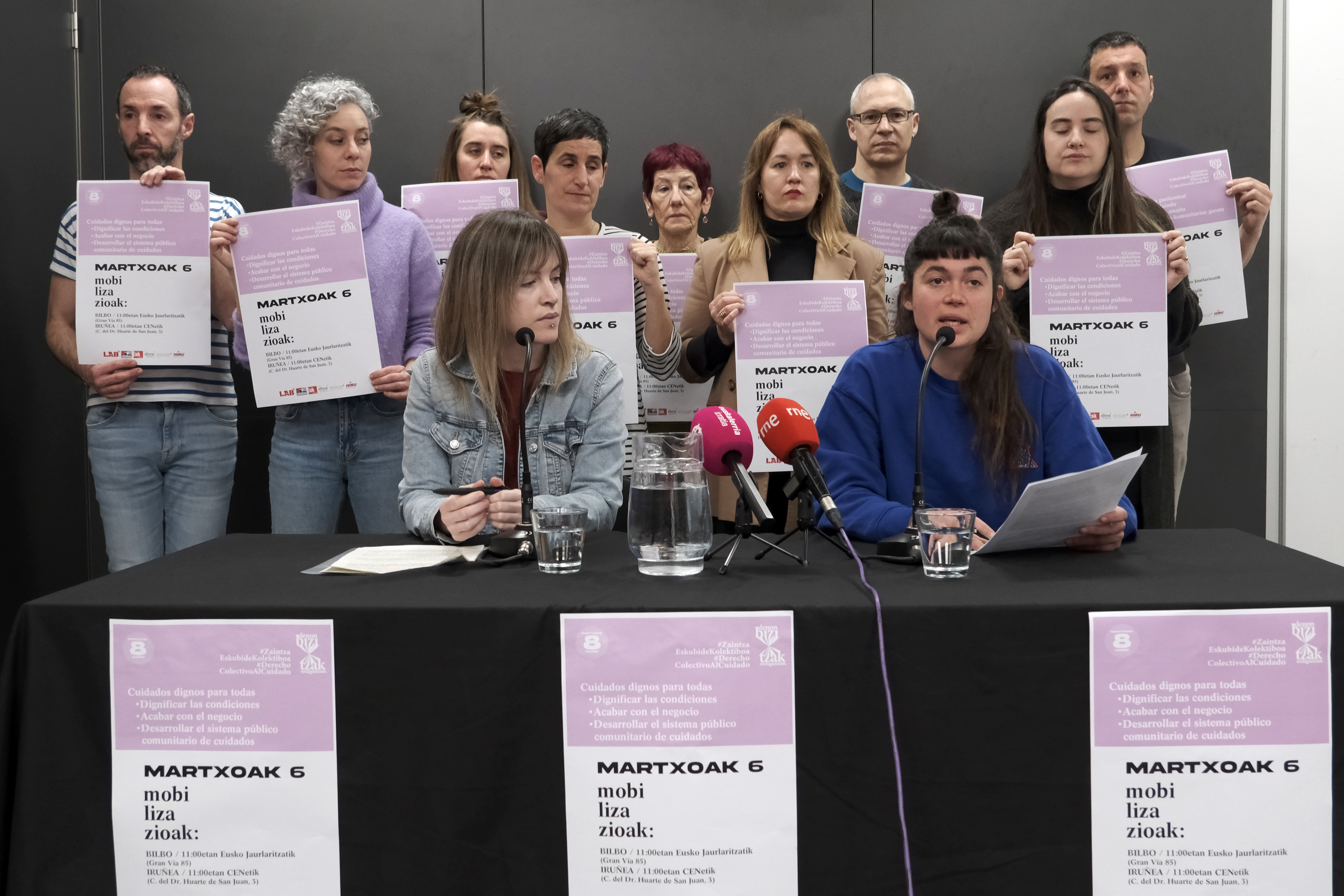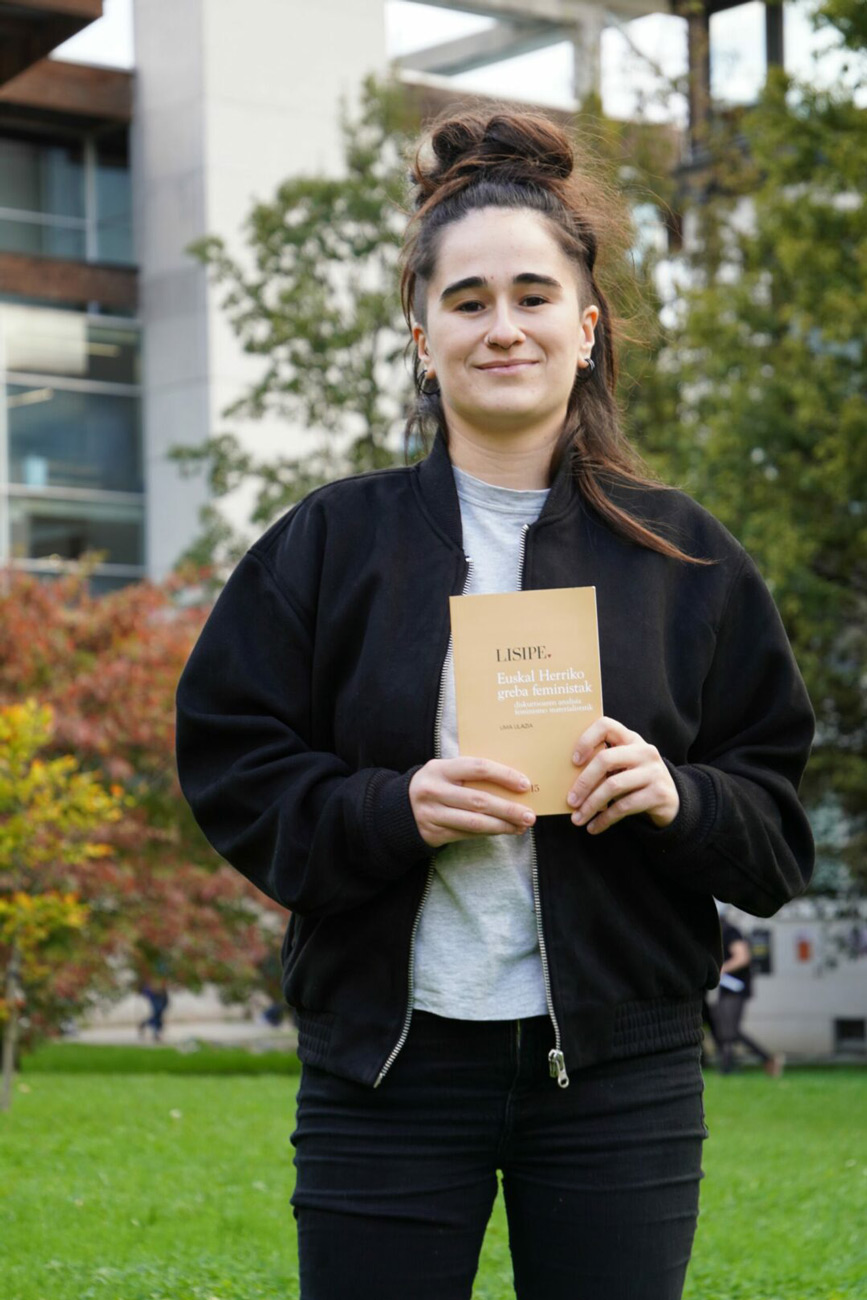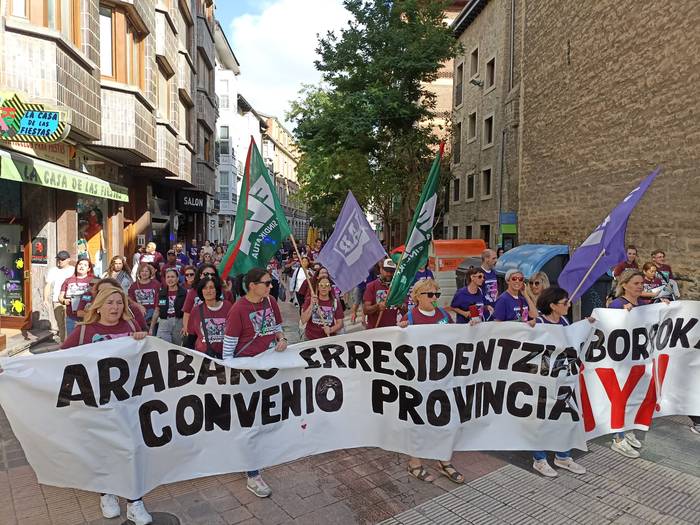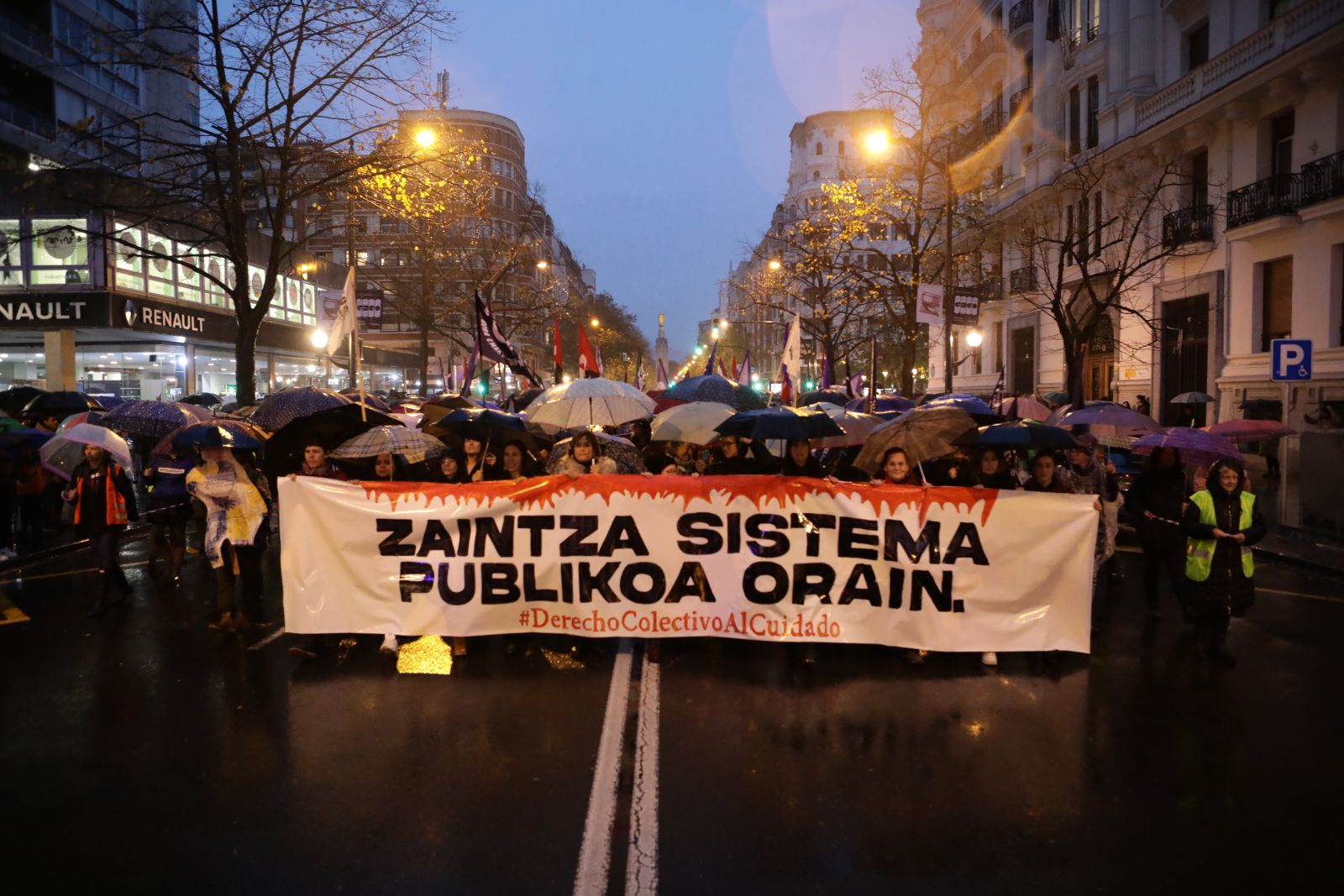"In the best forecasts, the older adults will double the number of young people and in the worst case they will multiply by five. We must reflect on care"
- The sociologist Irati Mogollon (Lezo, 1991) organized a reflection session on Wednesday at the Lezeaga Hall in Llodio. It proposes reflecting on the organization of care and putting it in the future, both socially and individually.

Today you're going to talk about the architecture of care. But if I'm not mistaken, you'll basically talk about old age, right?
When we talk about the architecture of care, we're talking about soft, hard infrastructures to support life. It will be a session on this, not just of old age. But it is true that we are going to focus on old age, because that is where the most vulnerable challenges of today are and we are aging as a society, because that is also one of the big areas that you do not want to look at.
You think everyone should reflect on old age and project how they want to happen. What is your proposal?
As for the organization of life and aging, the biggest problem is solemnity with care. We do not recognise our needs and do not express them.
The complexity of the challenge lies in it. That is the first thing to do. Discuss recognition among all and think about what each wants. This is one of the biggest problems, which you normally don't want to think about old age until it's already on top.
Therefore, in addition to the ideal resources we have, we must strategically reflect on the public, private and community resources we have and on those we want to build for this care model we want. That's the shortage we have, and that's what we're going to work on in the program.
To what extent does care condition the organization of personal life, especially among the elderly?
Old age is transverse, because it is something that occurs in public, private and community relationships. Inevitably there is a reflection of reciprocity.
"Reciprocity is not on the table today, and when people come to unfortunate situations, they stay in the model of authoritarian surveillance."
The responsibilities we do not assume in life have a responsibility towards others. I mean, if I have cholesterol and diabetes, to enjoy a kind of life, I'm leaving the responsibility for my care at the expense of others, whether individuals or organizations.
This reciprocity is not on the table today and, when it comes to unfortunate situations, it remains in the model of authoritarian surveillance. That is, strategic decisions are made without taking into account the desire and life model of the person.
For example, since in a certain town there is no elderly residence and his family cannot take care of it, we move a citizen to the neighbouring town without regard to his crew and his needs. Maybe that person has to drink a little with their friends once a week, or play at the Bonoloto once a week, but we take care of all the weight, whatever happens.
For this not to happen, we have to articulate it before, think and express it before.
There is a paradox. We do a test when it comes to caring for our little ones, seeing the ikastolas or public schools, but with nursing homes, day centers and many other services we do not work.
There is the fraternity or rejection we have mentioned for these decisions or reflections.
In this society, the base of the population pyramid is older people. Why is this debate not a boiling point?
We are obsolete societies, we are entering that name, thanks to the ageing or collective retirement of the baby boom generation, and also in Northern Europe.
"Very populist measures will be taken in a few years' time"
In the Spanish State, as a result of Franco, we are arriving 20 years late. We are entering the silver economy and society, where care is going to have more and more central importance. Obviously, many of the measures being taken at the time. But ironically, we are a very mature society, even though most of society is made up of its superiors.
In the best forecasts, the older adults will double the number of young people. At worst, multiply by four or five. These are the demographic predictions. It is not a risk, it is a reality. That is what they have taken into account and that is why late retirement etc. It will take us to live hard situations and that is why it is important to reflect before, to self-manage from the community and from the administration some debates.
There is not going to be an explosion, but in a few years' time, many micro-explosions and unpopulist measures will be taken. That is what economists are talking about and the time will come sooner or later.
Martxoaren 6an 11:00etan Bilbon eta Iruñean mobilizazioak egingo dituzte sindikatuek, patronalak eta Eusko Jaurlaritza zein Nafarroako Gobernua interpelatzeko, zaintza eskubide kolektiboari dagokionez.
Our towns and cities do not take care of us. We lack land, green areas, community spaces. Our people are designed to serve the capital. In the care village, however, life is the center.
Before, there was a main street, a gigantic street that crossed the city. Consumption and... [+]
Etxeko langile diren eta zaintza lanetan aritzen diren emakumeentzako etxea abian jarri dute Berriozarren. Zortzi pertsonendako lekua duen pisua gaitu dute zaintzan diharduten langileak 6-12 hilabetez espazio duin eta seguru batean bizi daitezen. SOS Arrazakeria Nafarroak eta... [+]
Together with racism, machismo, classism and eleven others, we could also place old age, frivolity. Although the exclusion that can be tolerated on the basis of age is possible for all, when faced with another type of discrimination, the reality can be hardened. Simone de... [+]
Change from lump to one. Wash and mix from body to body. Cook and feed someone. Lay or lift a person's body out of bed. Retention and cleaning during vomiting. All of them are conservation tasks. The list is much longer, although you can rarely do, listen or see the entire census... [+]
A decision by the Provincial Council of Álava has left over 150 people without home service, according to EH Bildu. The Navarre Thycna Association has denounced that many immigrant women need to have a room in exchange of 700 euros, domestic staff or an inmate. LAB denounces... [+]























